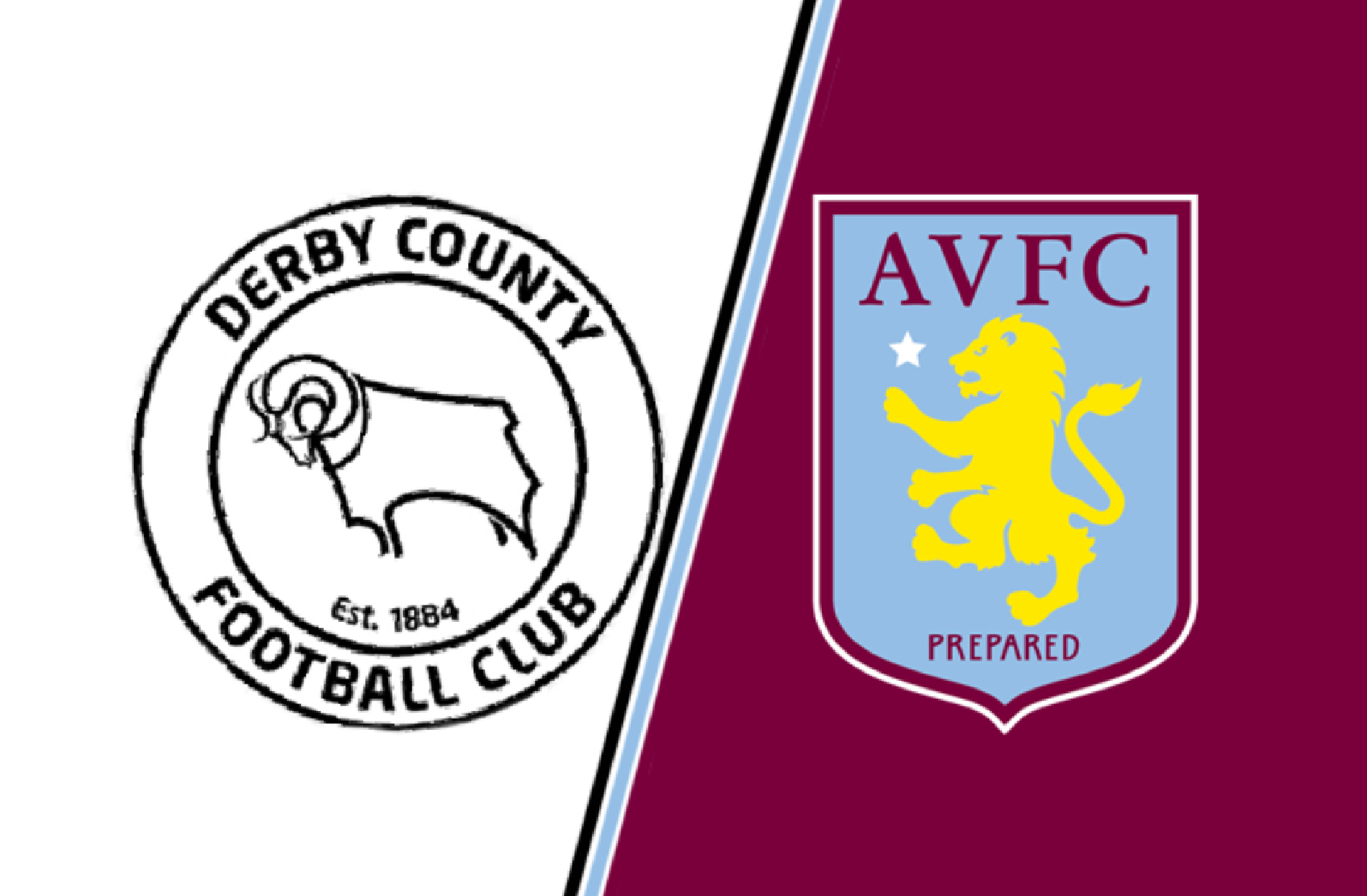Wembley, Fate and Fortune: A guide to the play-off finals – Alex Coplestone-Crow
To many, the 27th of May is a date that shares an equal significance with any other. But, for those in the know, this date-3pm on the 27th May 2019 to be exact-marks the beginning of what is, for those aforementioned supporters, possibly the most tense, uncertain, and nerve-racking 90 minutes of the year.
These 90 (or possibly 120) minutes make up, of course, the Championship Playoff Final, the EFL’s method of finding the last team to accompany victors Norwich City, and runners up Sheffield United, on the short trip from the second tier of English football to the Premier League. This year’s final, a battle between Chelsea legends John Terry and Frank Lampard, and Chelsea loanees Tammy Abraham and Fikayo Tomori, will be pitched between Lampard’s Derby County and Dean Smith’s Aston Villa, the Villains having defeated close rivals the Baggies 4-3 on penalties, in a playoff derby, Derby going through after a championship classic, and as the first team in the history of the league to overturn a 1st leg home defeat, beating Leeds 4-3 on aggregate.

To a football fan, the terms ‘1st leg’ and ‘on aggregate’ come as second nature; however, not everyone, to their detriment, is a fan of the beautiful game, so a glossary of footballing terms can be found at the end of this article.
So, to cut to the chase, the biggest game of the championship season will be played between the Villa and the Rams-5th and 6th place in this year’s competition. Immediate alarm bells should be ringing, if footy fans were rational folk. How is it that the competition for third place is battled out between places three to six? Why not have the top three merely promoted automatically? What does this system, in place throughout the world, bring to a football league? All questions which, to an outsider, seem to discredit the method.
However, to a fan, and the cubs involved, the importance of the playoffs can never be underestimated. They bring many things to the championship; most obviously, they grant the prospect of promotion to a wider array of teams, creating fierce and entertaining competition, but they also help to motivate managers and their players, encourage large crowds to games, and the victor, if successful in the top division, will reap the rewards of a successful playoff campaign.
Last year’s winners, Fulham, despite a disastrous premier league season, finishing second from bottom, and thus returning to the second tier, are estimated to have received over £100,000,000 in prize money from the premier league, over the course of the 2018/19 season. In the case of the 2019 winners, it is estimated that whoever emerges victorious will earn £170 million-even if relegated the season after. This figure would be raised to nearly £280 million, if that team survives for at least a season in the top flight. Of course, this value only takes prize money and advertising into account; the figure would be far higher if increased attendance, ticket sales, and international recognition were factored into the equation.

But does the injection of cash into one team justify the use of a playoff system? One could argue that this is unfair, that a team who finished 9 points behind third place could be about to be promoted… and that may be the case. But, as any fan of a victorious playoff team would tell you (just ask a Palace fan, playoff victors a record 4 times) that thoughts of fairness are few and far between, when your club walks off the hallowed turf, under the arch, now a premier league side.
Nothing else matters more at that moment. It is this elation, for one team, that makes the playoffs a worthwhile pursuit. It paves the way for a classic English underdog story, take Derby-Leeds for example; It provides an exiting ending to a season which might otherwise be decided in March, giving fans hope of promotion through a dramatic and rewarding (both financially and otherwise) pathway.
It brings high drama, and a greater overall sense of competitiveness, synonymous with the English game. But who else benefits from the five playoff matches? For one, every club who participates receives financial reward, through ticket sales and TV licensing, and the inevitable influx of hopeful fans. But more than this, the league as a whole, and the stadiums which hold the games, benefit from these monetary flows, and the heightened interest in the EFL as a whole brings fans to the cities which host the ties. But are the playoffs are a positive system for everyone?
At the end of the upcoming match on the 27th May, one club, Aston Villa or Derby County, will be headed for the premier league. For the other three, bitter disappointment. But disappointment can be a positive influencer; at the full time whistle last year, Aston Villa came away as the defeated party, beaten by Fulham 1-0. That result, arguably, has spurred the claret and blue fans to higher things, with villa park seeing record championship attendance (41,698), and a newfound passion for the club, not least helped by the captaincy and management by Jack Grealish and Dean Smith, both childhood Villa boys, sparked in the Holte end faithful.

Aston Villa are a traditional premier league club, with their greatest achievement being the European Cup in 1982; many would argue they deserve to be in the top tier, with an average position of 8th place in the top flight over the last 50 years. Yet a similar argument can be made for their opponents; Derby county, a team who’s 2007 spell in the premier league ended in their placing bottom, with a single win and a goal difference of -69, does not detract from their status as a former top flight team, have the opportunity to prove themselves as a top team, an opportunity that the playoffs offer to the top six, not just the top three teams.
This is the prospect that the playoffs bring. It gives traditional premier league sides the opportunity to return, and it gives underdog sides the chance to prove themselves in the big leagues. It carries with it an aura of old fashioned competition, that results in the winner being the team who keep calm under pressure and beat the others on the day, and not a winner who ended the season with the most points. The system must be successful, because it can be found, in some form, in almost every footballing nation in the world. It is certainly entertaining.
While it’s hard to imagine a great number of bubble readers being either Villa of Derby fans, some may know that this same tie, back in 1946, resulted in the highest attendance ever recorded at villa park-76,588-despite a modern maximum capacity of 42,682. Similar numbers are expected to go to Wembley next Monday, in what is known as ‘football’s most lucrative game’.

As a Villa fan, one can only hope that the Villa boys from Aston are finally successful in returning from a short vacation into the championship. Whatever the result, a full match report will be forthcoming, and the winners will be fully deserving of their return to the top flight. It now falls to the clubs, and their supporters, to get behind their players, to push themselves into the premier league, and, ideally, to stay there for longer than last year’s winners, Fulham, were able to manage.
For the victors, next year holds visions of away days at the likes of Anfield and Old Trafford; for the losers, visions away days at Kenilworth Road, the home of newly promoted Luton FC. For all those who don’t care who wins-the neutrals-the game promises to be a belter, with both sides confident of victory, and, as such, I would urge anyone who has any interest in the beautiful game to watch, or at least follow, the richest game in club football. To the few who may be avidly supporting either side; may the best team win, as long as they’re wearing the lion rampant.
Glossary of terms:
Villains/The Villa/The Lions – Nicknames for Aston Villa FC.
Rams – Nickname for Derby County.
The Baggies – Nickname for West Bromwich Albion.
Palace – Nickname for Crystal Palace FC.
1st leg – The playoff semifinals are played over two matches, home and away, or ‘1st and 2nd legs’.
Aggregate – The total score after both legs.
Villa park – Aston Villa’s home stadium since 1897.
Holte End – The famed south stand of Villa Park, home to the most loyal fans.
‘Hallowed Turf’ – A nickname for Wembley, the national stadium of England.
‘Que sera sera’ – The title of a popular football chant, sung by teams who have qualified to play at Wembley















Post Comment
You must be logged in to post a comment.